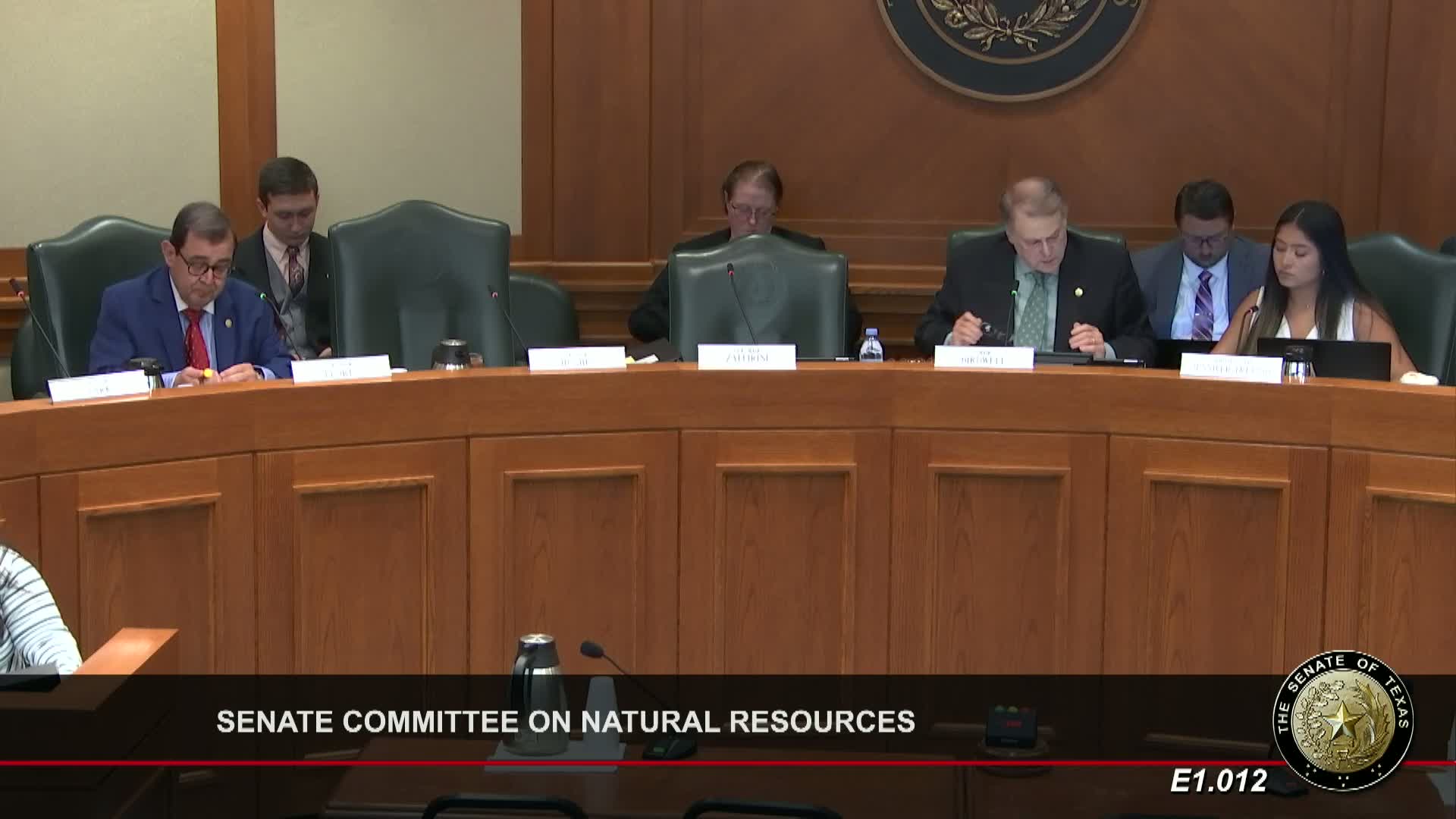Article not found
This article is no longer available. But don't worry—we've gathered other articles that discuss the same topic.
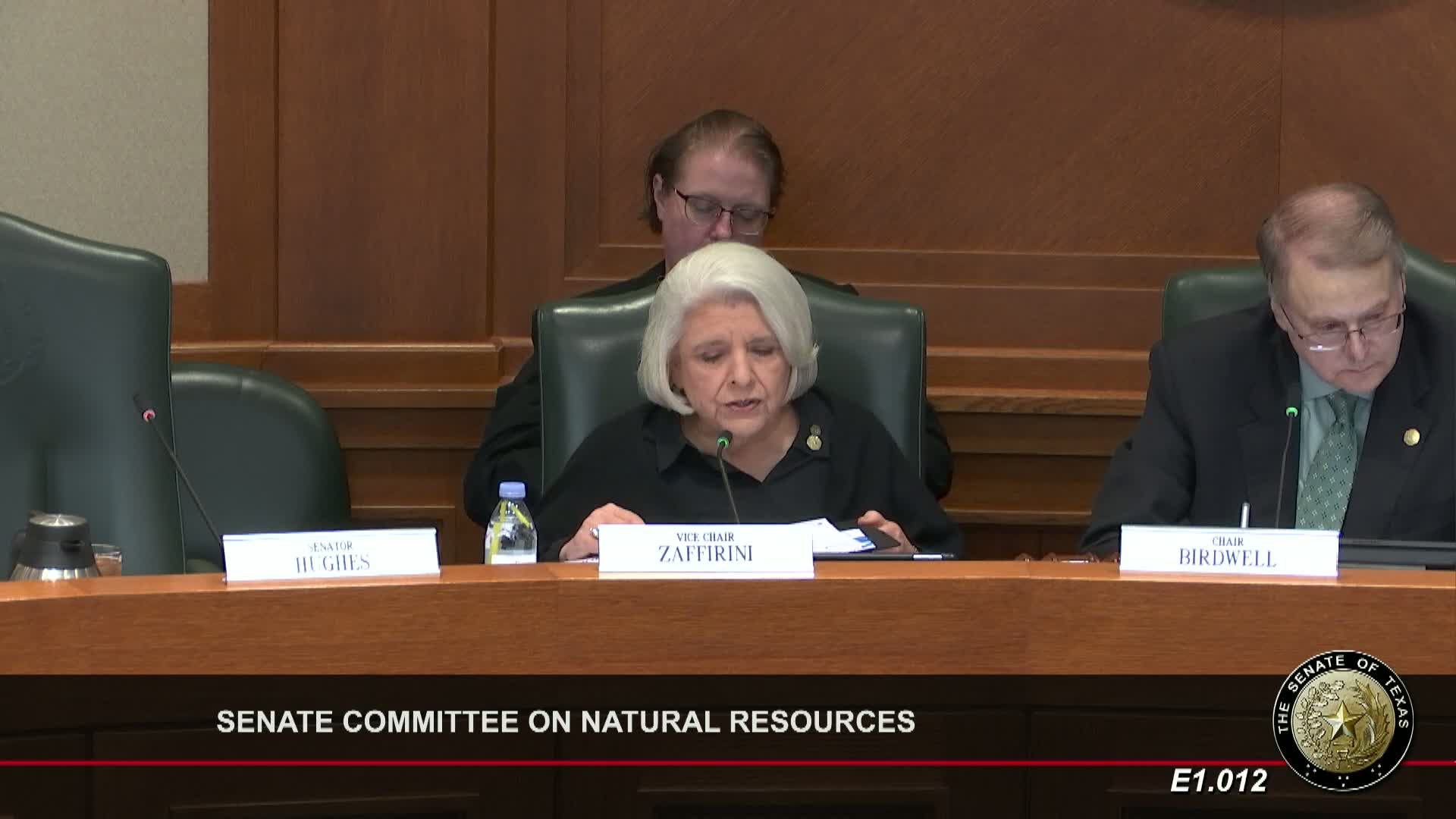
Bill would require Railroad Commission to restore surface and indemnify landowners after plugging operations
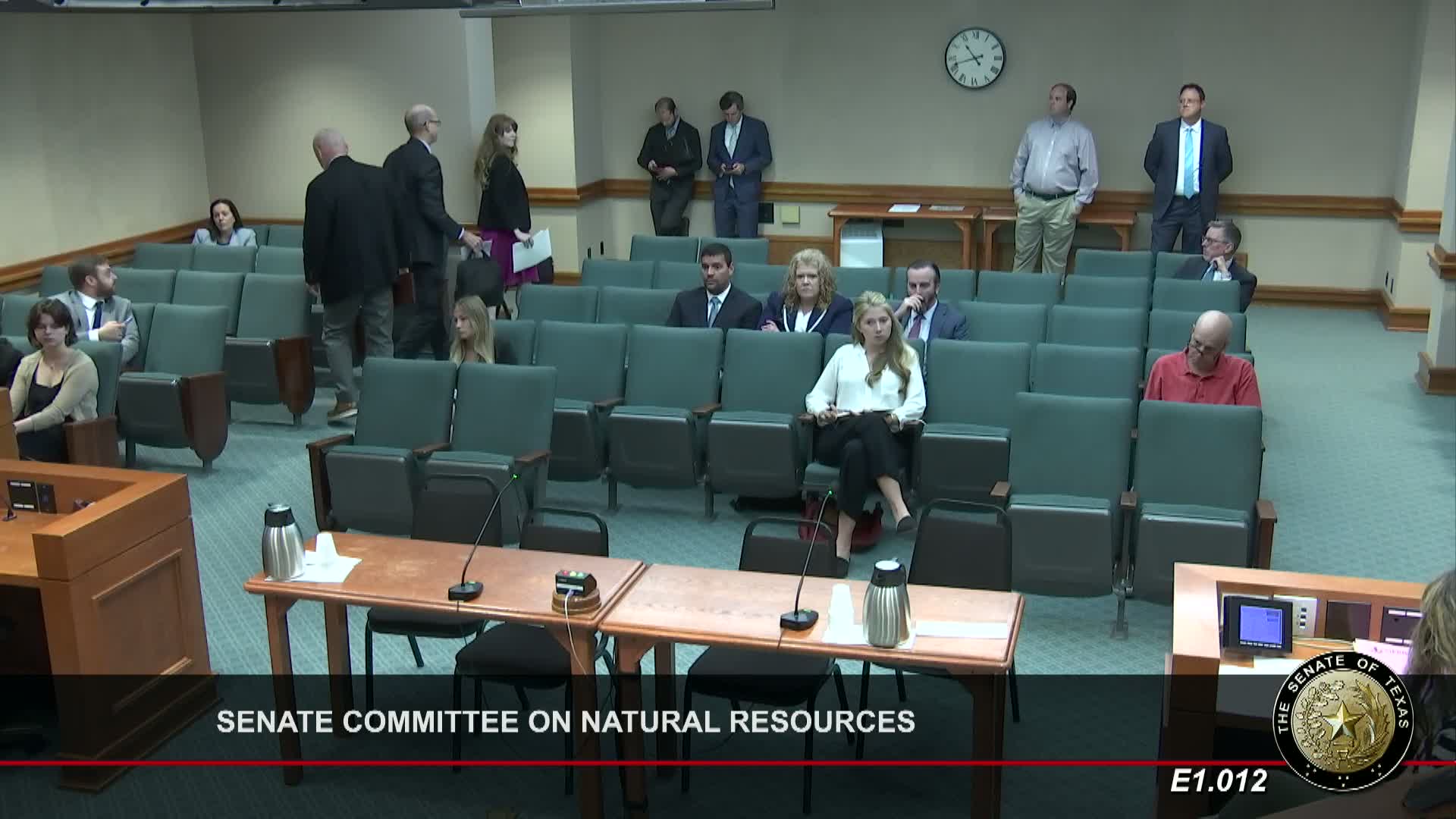
Bill would require TCEQ to hold public meetings on composting permits when local legislators request them
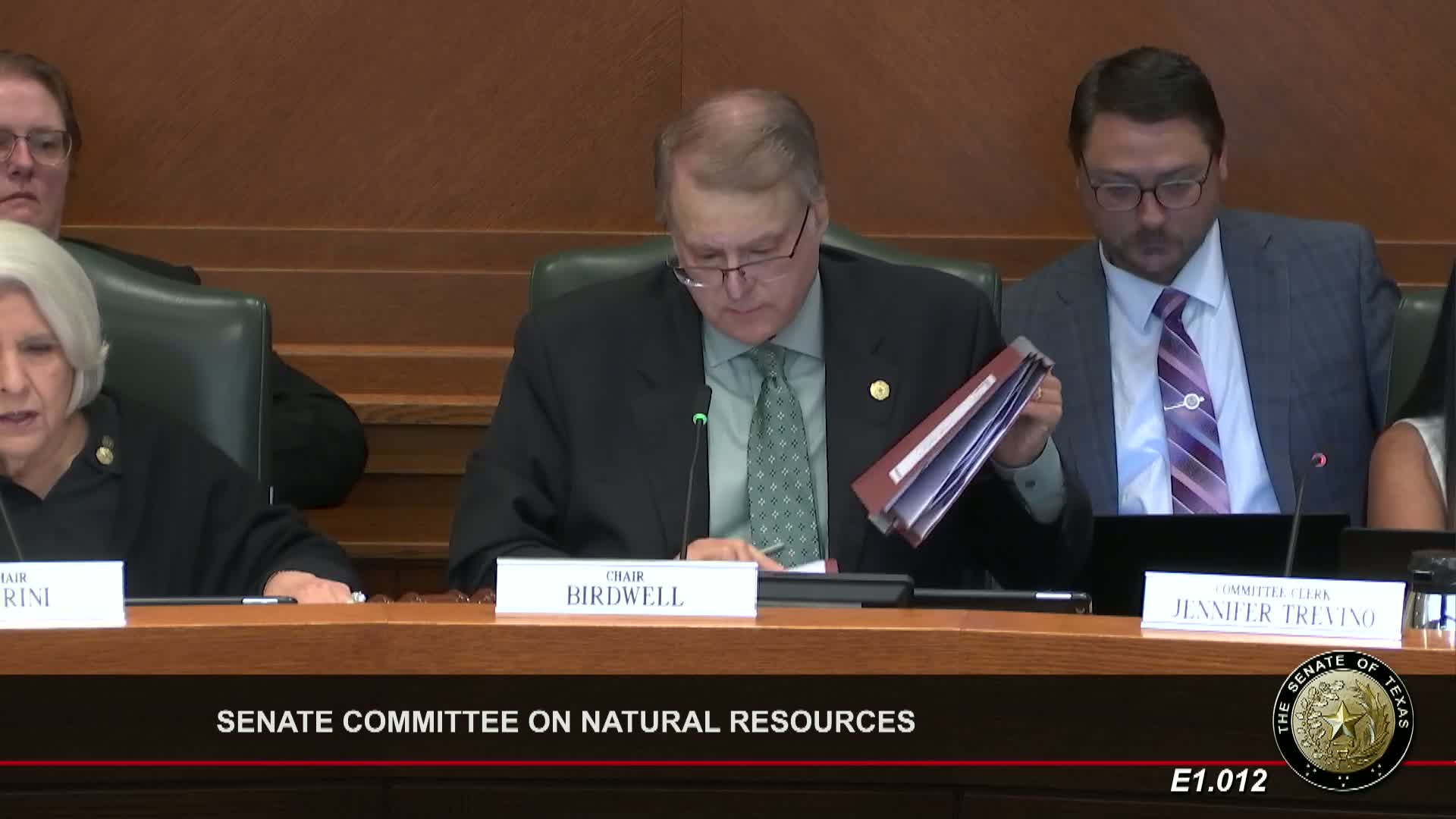
Senators approve clarification to allow on‑site storage of reactor‑generated high‑level waste at new reactors
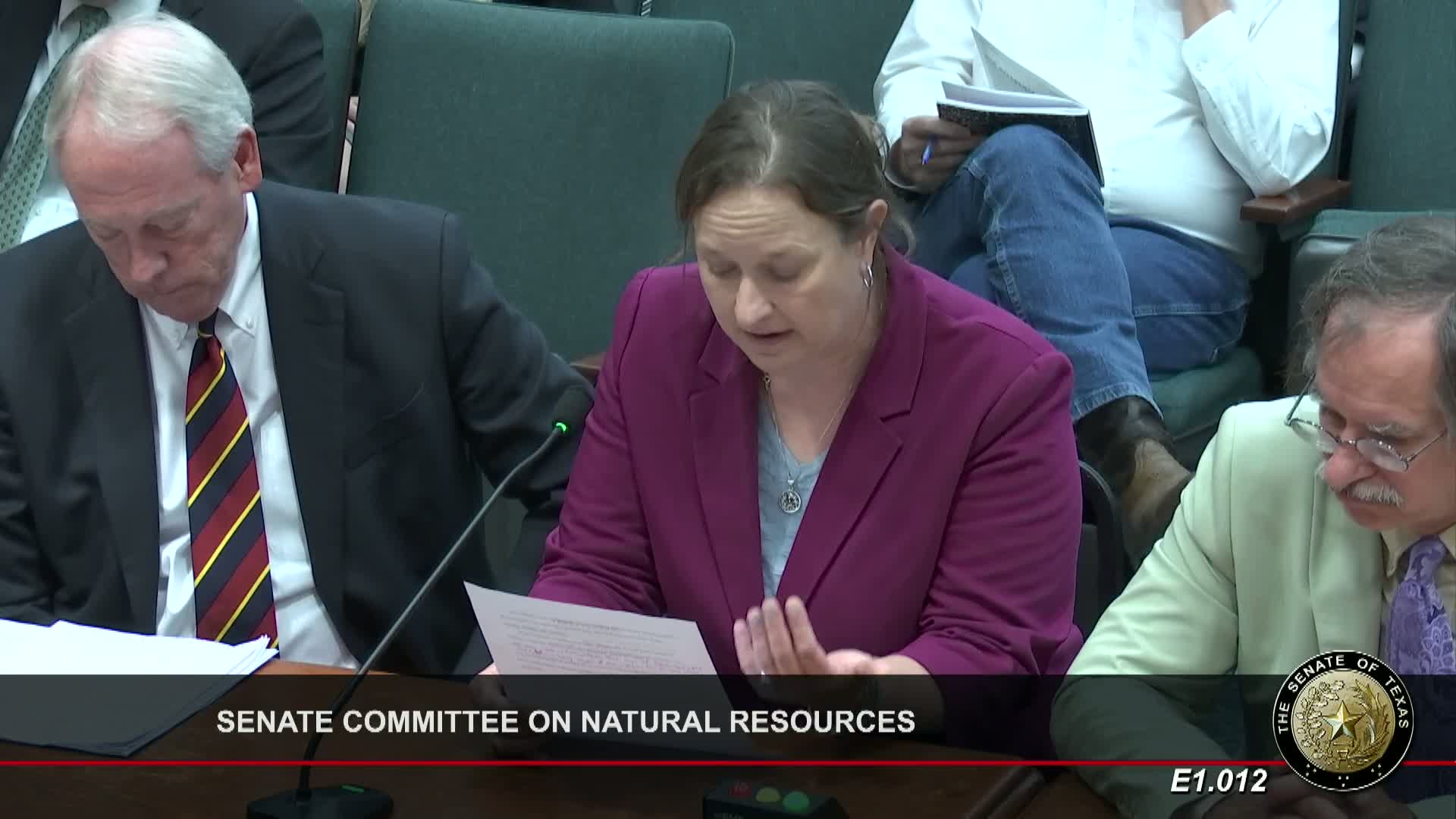
Produced‑water bill draws split testimony over liability shield and public health safeguards
